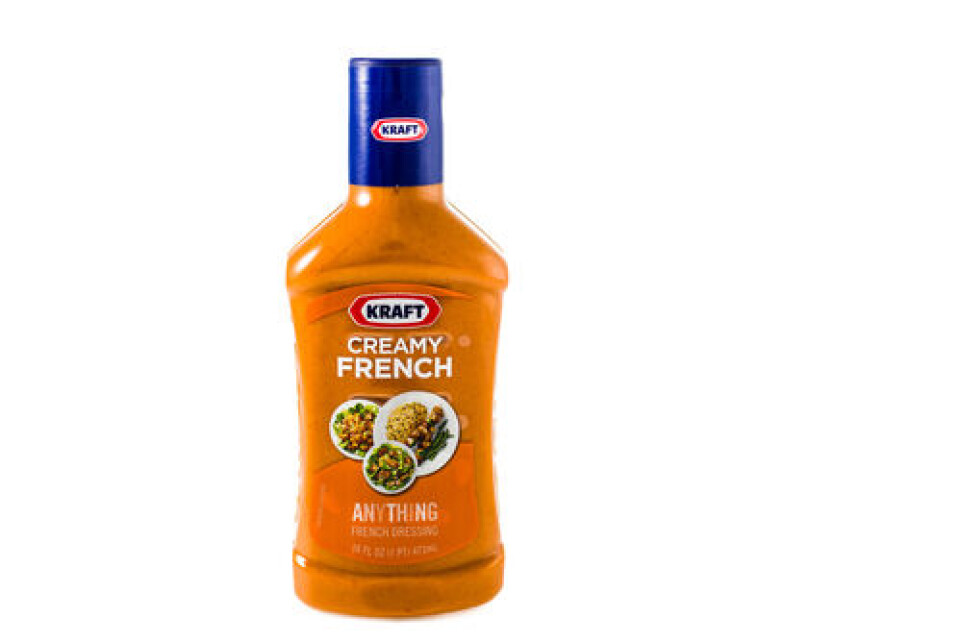-
The price of France's Easter chocolate habit revealed
Many French families prefer bunnies and bells to eggs
-
French boulangeries demand right for staff to work on May 1 so they can open
Artisan bakery owners can work but employees cannot, while certain industrial bakeries are allowed to remain open with workers
-
The magic of mayonnaise: Why a homemade emulsion always woos guests in France
Plus, which shop-bought mayo brand is best?
French dressing is news in US but orange sauce is not found in France
A 72-year old rule governing ingredients of the sweetened salad sauce has been dropped - but its association with France remains a mystery

‘French dressing,’ an American orange sweetened salad sauce, has been in the US news after 72-year-old rules governing its ingredients were dropped.
This means that, essentially, anything will now be able to be marketed using the name.
However, despite the name, we found it hard to find anyone in France who had heard of it or knew of any link to France.
The sauce, composed of at least 35% vegetable oil with the addition of vinegar or lemon juice as stipulated by the previous standards laid out by America’s Food and Drug Administration (FDA), does not resemble traditional French vinaigrette in colour or taste.
Its orange colour comes from added tomato paste, puree or ketchup, ingredients listed as optional in the regulated ingredients from the 1950s, and it is often described as ‘creamy’ by Americans. The rules also allow for it to contain egg, spices and ‘natural flavourings’, sherry, and several food colourings, thickeners and other additives.
To British people, on the other hand, ‘French dressing’ suggests a more restrained concoction: Essentially an oil and vinegar vinaigrette, but with additions such as mustard, garlic and sugar.
“I have never heard of it,” said Arnaud Champetier, 39, the owner of the restaurant Flesh in Paris, which is known for its American-style grilled meats and which serves ranch, barbecue or a homemade spicy sauce but has never accompanied its products with French dressing.
Several other restaurant owners in France contacted by The Connexion agreed that it is not known in France.
The sauce is barely even sold in specialist American product shops.
“It’s got nothing to do with French vinaigrette; it’s just a name,” said Florent Nataf, 41, owner of Cometeshop, an American-centered product shop based in Paris.
Mr Nataf said he has been selling a kosher version of a French dressing sauce for six months under the Canadian brand Cibona. He received 12 bottles last summer and has sold nine of them.
The exact list of ingredients in French dressing vary from brand to brand. However it has become more difficult to find it in restaurants in the US, as it is less popular than in the 1970s and 1980s, according to some Americans contacted by The Connexion.
“If you had told me it was invented in Kansas, I would have believed you,” said Laurie Winkel, a 31-year-old comedian who has lived in Paris since September. She said she associated it with “redneck culture rather than French culture,” though she guessed the ‘French’ association might have helped its sales.
The sauce is no less absent from American restaurants' tables in France. Breakfast In America, an American-diner chain in Paris, listed ranch, BBQ, honey mustard and salsa sauces in its menu to go with tacos, wraps and hamburgers, but no ‘French dressing’.
“But we serve French’s mustard,” said one Breakfast In America’s team member, referring to a mustard sold by the American brand French’s.
Allison Lounes of YourFranceformation, an American in Paris who helps other non-French people move to France, said she knew of it but would presume it to be “about as French as ‘sauce américaine’ is American, which is to say, not at all”. Sauce américaine includes ingredients such as crab, vegetables, cognac and white wine.
Asked about its taste she said: “It’s fine, but has a sweeter taste compared to actual French salad dressings.
“But whether or not it’s French misses the point. The point is that there’s a name for this particular recipe. If you change the ingredients of the recipe, it is no longer the same thing.”
Read more
Most herbes de provence sold in France are not authentically French
French engineers build website to calculate ideal raclette quantities
























